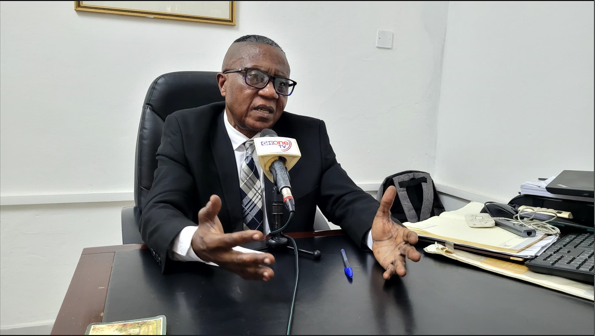The Director of Research at the Institute of Economic Affairs (IEA), Dr. John Kwabena Kwakye has hinted the International Monetary Fund (IMF) might have no qualms with regard to the cedi’s current slide asserting the Bretton Woods institution may be open to seeing the currency depreciate until it reaches its true value against the dollar.
The Ghana cedi has hit the 15-cedi mark at some forex bureaus recording an over 14% depreciation rate so far this year. Parliament last Friday convened an emergency sitting to approve a $150m GARID loan as the government pushes for foreign inflows to stabilize the situation.
The country also, despite reaching a staff-level agreement with the IMF after, a second review of the ongoing $3bn Extended Credit Facility deal has been unable to unlock the 3rd tranche of $360m as a result of its inability to make progress in its ongoing external debt restructuring program.
But with some analysts and financial sector players predicting the situation could worsen with the cedi hitting as high as 18ghc to 20ghc, Dr. John Kwakye has downplayed assumptions the IMF would rapidly disburse the $360m, to help stabilize the cedi even without an external debt restructuring MoU.
“The way I understand the IMF, for all you know, they may even be thinking that the cedi has not depreciated higher enough. They also do their own calculations of where they think the equilibrium exchange rate should be and for all you know, they have done their calculations, which is telling them that maybe we are not even near the equilibrium exchange rate yet.”, he told Starr News’ Edem Kojo.
“And so, for all you know, they may even want to see the exchange rate depreciate further.”, he added.
Dr. Kwakye who served at the IMF for over 10 years further asserts, that the economic principles of the IMF tilt towards allowing market forces to determine exchange rates and a lessening of the central bank’s intervention.
“That’s part of the IMF’s own economic principles. If your exchange rate is floating, say freely floating exchange rate, then let it float and let the exchange find its own level. Except that, they know that the economy may face short-term shocks from time to time. And therefore, they also recognize that the central bank can come in to intervene, just to smoothen the fluctuation due to those shocks.”, he explained.
“But they don’t favor you, trying to control the exchange rate on a long-term basis. That’s what I’m saying that given that kind of principle, they may even be thinking that maybe we should allow the exchange rate to depreciate further”, Dr. Kwakye insisted.
The Extended Credit Facility Arrangement approved on May 17, 2023, emphasized the role of Monetary and exchange rate policies under the program in reining in inflation and rebuilding foreign reserve buffers urging the Bank of Ghana to “enhance exchange rate flexibility and limit foreign exchange interventions to rebuild external buffers”.
Source: Ghana/Starrfm.com.gh/103.5FM/Edem Kojo




